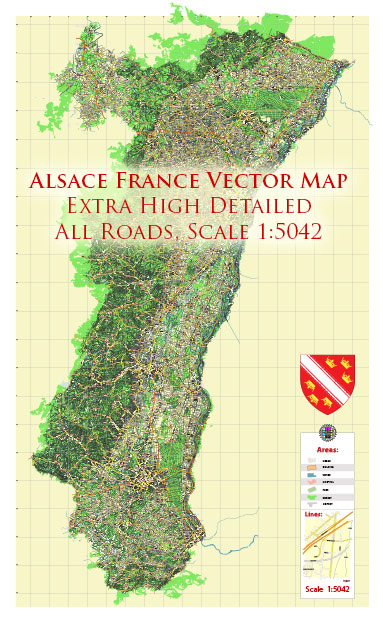Alsace is a region in northeastern France known for its rich water resources, which play a crucial role in its environment, economy, and culture. Here are some key aspects of water resources in Alsace:
- Rhine River: The Rhine River forms the eastern border of Alsace, separating it from Germany. It is one of the major rivers in Europe and a significant source of water for the region. The Rhine provides transportation, recreational opportunities, and water for various industrial and agricultural uses.
- Tributaries: Alsace is also home to several smaller rivers and tributaries that flow into the Rhine, including the Ill, the Bruche, and the Thur. These rivers contribute to the overall water resources of the region and are used for various purposes, including water supply, irrigation, and hydroelectric power generation.
- Groundwater: Alsace has abundant groundwater resources due to its geological features, which include porous sedimentary rock formations. Groundwater is used for drinking water, agriculture, and industrial processes. The Alsace Plain, in particular, is known for its significant groundwater reserves.
- Lakes and Reservoirs: There are several lakes and reservoirs in Alsace, often created for purposes like flood control, water supply, and recreation. The Gérardmer and Longemer lakes in the Vosges Mountains are popular tourist destinations, while the Plan d’Eau d’Ostwald and the Plan d’Eau de Plobsheim are used for water sports and other recreational activities.
- Water Quality: The water quality in Alsace is carefully monitored to ensure it meets the necessary environmental and health standards. Pollution from agriculture, industry, and urban areas is a concern, and measures are taken to protect and improve water quality.
- Water Management: Water management in Alsace involves various agencies, including the Rhine Water Agency (Agence de l’Eau Rhin-Meuse) and local water agencies, to oversee the allocation and sustainable use of water resources in the region. This management is essential for maintaining the health of the ecosystem, safeguarding water quality, and meeting the water demands of the population.
- Wine Production: Water is crucial to Alsace’s renowned wine production. The region’s unique terroir and climate, combined with well-managed water resources, are factors that contribute to the quality of Alsace wines, especially its famous white wines.
In summary, Alsace benefits from a variety of water resources, including the Rhine River, tributaries, groundwater, and lakes, which are essential for agriculture, industry, recreation, and the region’s distinct cultural and environmental features. Careful management and protection of these resources are vital for the region’s sustainable development and environmental health.


 Author: Kirill Shrayber, Ph.D. FRGS
Author: Kirill Shrayber, Ph.D. FRGS